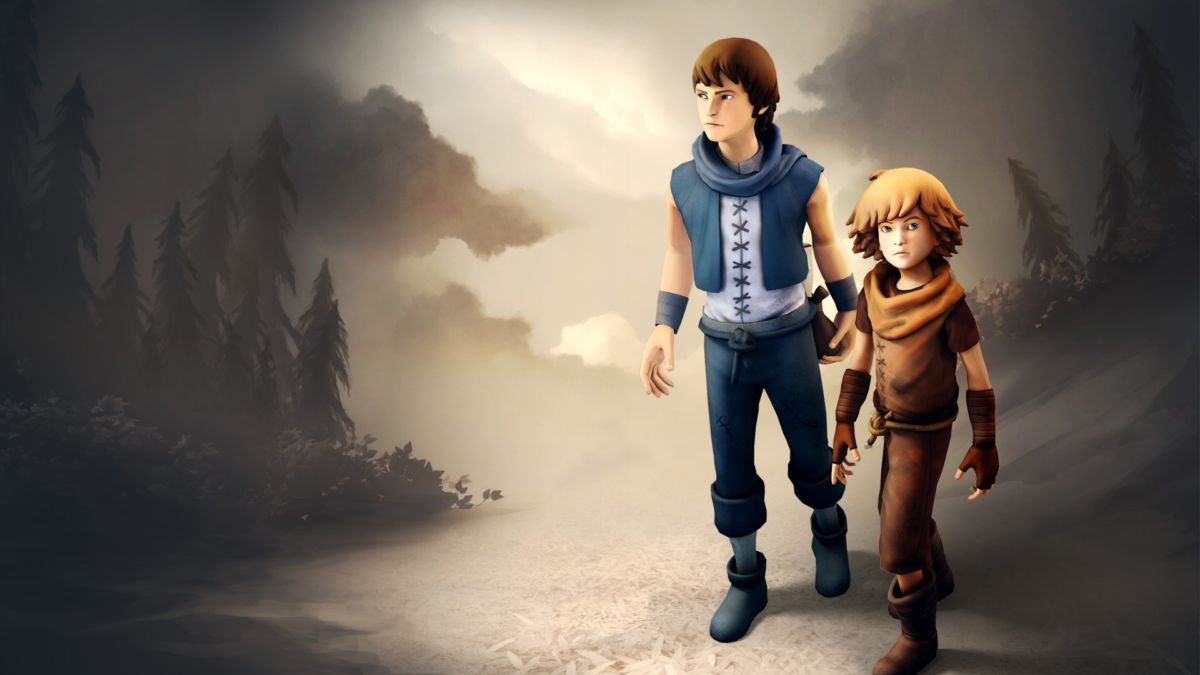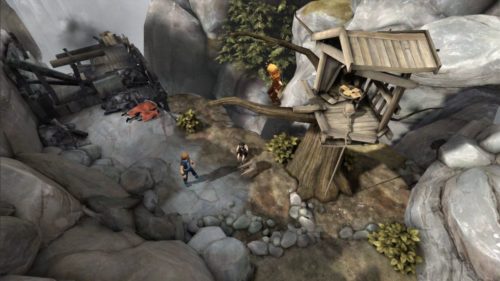
The clearest fault line in modern gaming is between gameplay-oriented titles, and story-oriented titles. Take this division to its extreme, hold up Tetris next to Heavy Rain, and you start to think ‘why are we even talking about these in the same category?’ Brothers: A Tale Of Two Sons is, from the off, unapologetically story-oriented, but it’s still clearly a game, not an interactive movie.
While it’s some years old by this point, you wouldn’t guess so from looking at it. Stylised graphics simply don’t age in the same way as the industry’s constant, running-on-the-spot efforts to make things look as realistic as possible. There’s the occasional moment of mild clunk to the animations, but sight unseen you probably wouldn’t peg it as six years old.
Going through Brothers is a basically linear experience, and fairly short at that (I polished it off in an afternoon), but the sheer variety of settings and environments makes it feel a great deal deeper and more expansive than it is on a bare-bones level. For all that the areas have fairly clear dividing lines between them, they never feel like ‘levels’ in the classic sense, only stages of one cohesive adventure.
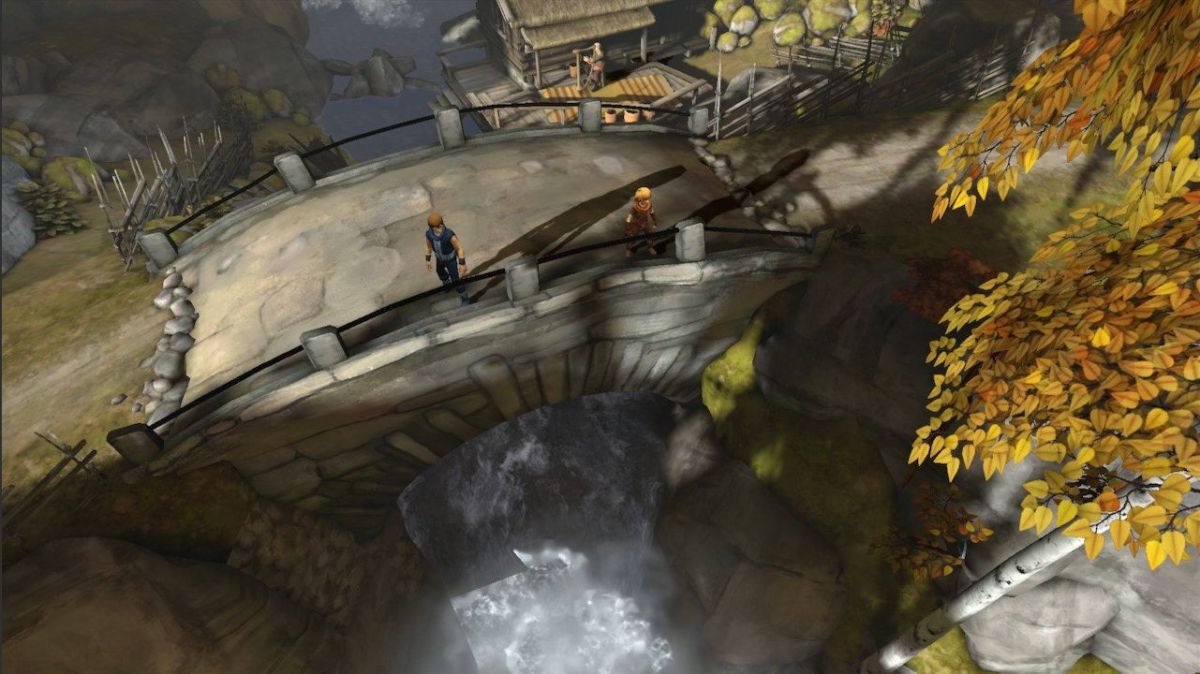
The story isn’t what you’d call complex, and it’s no talkie, either – all the characters speak a fluent Simlish-style gobbledegook which is mainly just vowels. But this is to its strength. With next to no backstory or exposition, it throws you straight into a scenario where you understand the stakes and the goal. It also takes the canny route of familiarising you with the fiddliest part of the control system, moving both brothers at once, right off the bat.
When I say ‘fiddliest part’, this represents possibly the hardest challenge the game has to offer. It ramps up as it goes along, but even at the climax it’s far from difficult. Once you’ve grasped the basic controls you’re set to take on the rest of the game. Like the story, the gameplay’s simple, but by no means facile. Even if figuring out what to do in each fresh situation is straightforward, there’s still the fun of learning what it is you’ll be doing.
This is dangling off the edge of giving a spoiler, so forgive me if the language is curt: at the very end, there’s a moment when the events of the story and the control scheme come together, which I can’t praise enough. That moment, that greater-than-the-sum-of-its-parts moment, is what the interactive story end of video gaming should always be aspiring towards.
Often enough the storyline and the moment-to-moment gameplay are layered on top of each other, put together but never meshing, and certainly never complementing each other. There’s been plenty of games with memorable storylines, you could probably name three or four off the top of your head, but probably not one where a particular mechanic was crucial to the narrative.
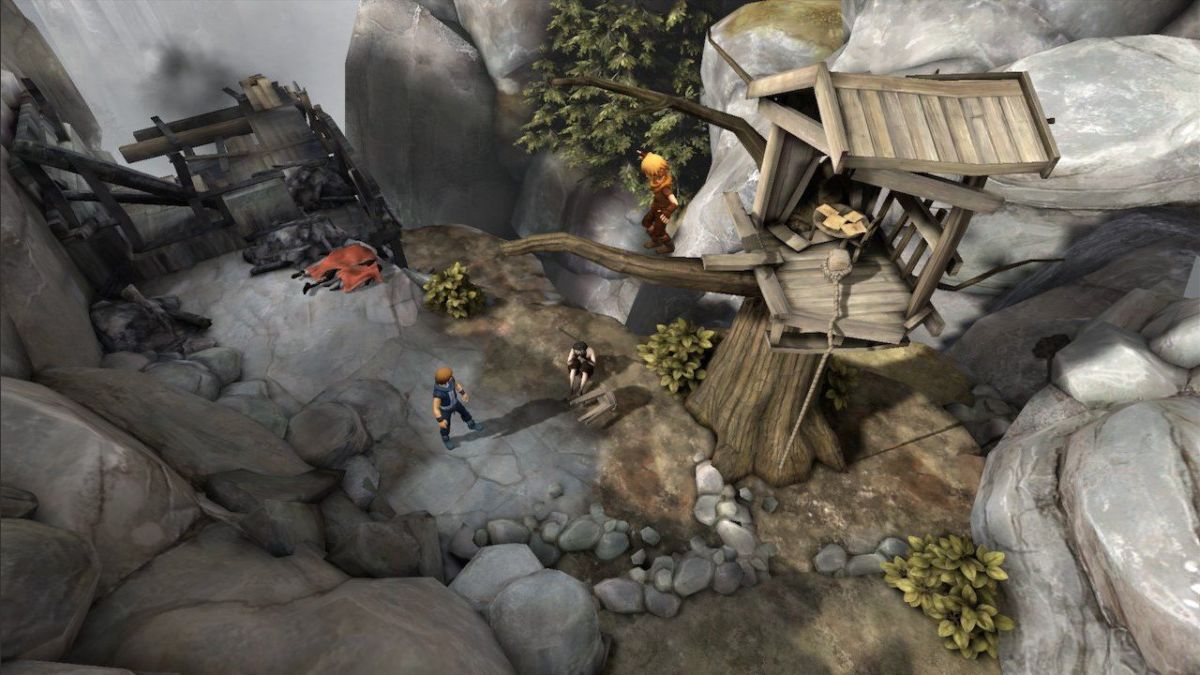
READ NEXT: The Best Indie Games of All-Time
Even with the AAA-est of titles, most of the time when the story starts, the gameplay stops, and you’re going in circles in a small room, or charging down a corridor of window-dressing while characters talk at you. This little Swedish game has blown them out of the water – all those big brands where rough, tough marines take back the White House and save America.
Is it particularly Swedish in character? The world certainly has fantasy’s usual generically Northern European aesthetic. Usually I tend away from pronouncing nations and cultures to inherently be a certain way, but the story’s effective lack of dialogue can’t help but be reminiscent of those smiling, sexless figures you get in IKEA how-to guides, or the little comic books you get with LEGO sets. In both examples, as with Brothers, words are substituted by broad, slapstick-style physicality.
There’s any number of fantasy comparisons you could make with Brothers. It’s got plenty of The Hobbit overtones, sharing more than a few of its palette of characters and beasts. In the field of gaming, it bears comparison to Zelda: Ocarina of Time – still the GOAT – given its cosy fantasy aesthetic leavened with some genuinely sombre moments. But to say a fantasy work is like another fantasy work doesn’t tell you much, even given the badge of quality that is mentioning it in the same breath as Ocarina.
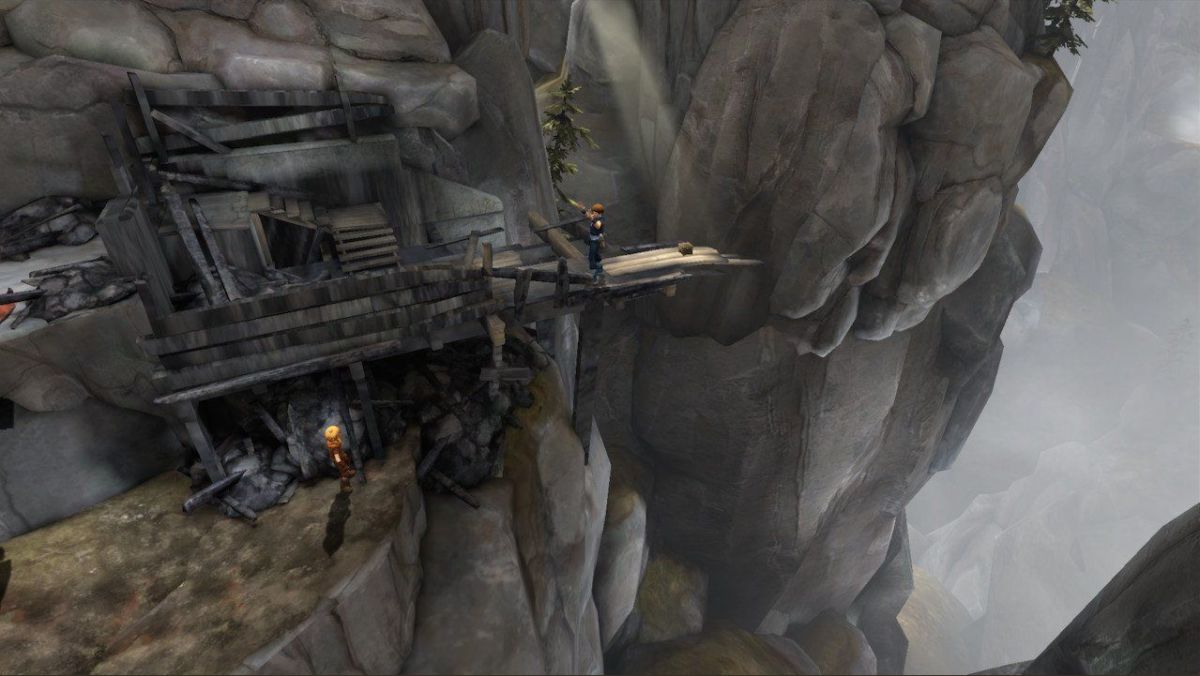
If you’ll permit me an incredibly left-field comparison, the game it’s most like is Nintendo’s hyperactive minigame-rush Wario Ware. It has the pared-down control scheme of the analogue stick and one button, and moreover, it has the series of discreet challenges, puzzles, and encounters, each of which you have to wrap your head around fairly sharpish and with minimal clues. Again, it’s relying on being intuitive enough that you’ll grasp it almost immediately, and if you’ve been paying attention it’s likely succeeded.
On the subject of Nintendo, while Brothers was originally a PC title, it may be uniquely well-suited for the Switch. Not because the handheld mode particularly adds anything, but because, being a game with two player characters, it was always begging for a co-op mode, and the Switch’s two-part controller lets a second player jump in and out on the fly.
If nothing else, this makes the gameplay a bit more manageable – not that controlling both characters yourself is unmanageable, but it can get fiddly at times, so getting in a friend is a welcome break. The trend in gaming for a while now has been separate people in separate buildings playing on separate consoles, and anything which bucks this and has the players on the same sofa gets my nod.
The trend of bringing years-old games to the Switch can occasionally seem a little risible. One thinks of that console’s version of Skyrim, the ninth or tenth iteration of that particular title. But Brothers: A Tale Of Two Sons is such a natural fit for the Switch that it’s easy to look past its age and just enjoy the experience as the story sweeps you away.
Some of the coverage you find on Cultured Vultures contains affiliate links, which provide us with small commissions based on purchases made from visiting our site. We cover gaming news, movie reviews, wrestling and much more.


